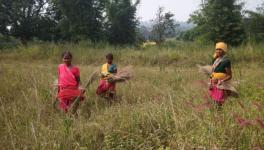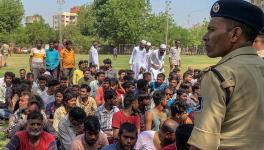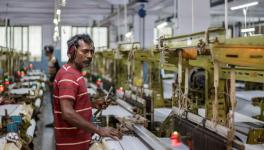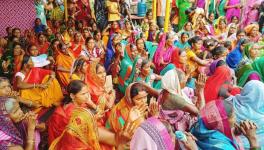Jharkhand Govt Aspires to Formulate Targeted Policies for Migrant Workers as it Undertakes Statewide Survey
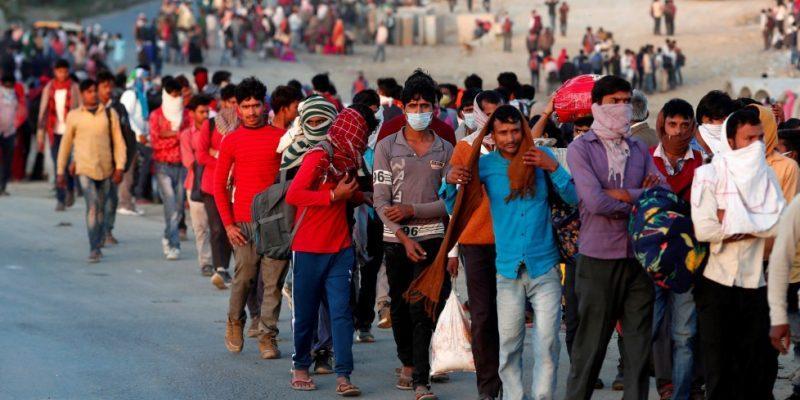
Image for representational purpose. Credit: The Wire
The aftermath of the Covid-19 pandemic and the consequent lockdown highlighted workers' precarity and a lack of secure life and livelihood. The lockdown forced lakhs of migrants to return to their homes, but this journey was not easy, with many having to return on foot. The crisis also exposed the system's inefficient and non-existent policies for migrant workers.
Against this backdrop, a major issue that came to light was the lack of data on migrant workers. In response to this crisis, many state governments have pledged to collect data on migrant workers.
In this direction, the Jharkhand government, which has approximately 8.5 lakh migrant workers, launched its ‘Safe and Responsible Migration Initiative’ in 2021 to enable systematic registration and monitoring of migrant workers.
This initiative includes setting up labour consulates in Ladakh and Kerala and a statewide survey of migrants in all 24 districts. Policy and Development Advisory Group (PDAG), part of the consortium, has entered into a Memorandum of Understanding with the Jharkhand government to establish and maintain a unit for "evidence-based information policy making."
In response to Covid 19 induced migration crises, the Centre also launched two currently underway initiatives. An all-India migrants survey to estimate the number of internal migrant workers in the country along with information on their socio-economic and working conditions. The second one was based on the E-Shram portal to create a comprehensive national database of unorganised workers. However, it has been deemed 'incompetent' by the expert panel constituted by the Centre.
Expanding its SRMI initiative, the Jharkhand government is in the process of conducting its first survey in the state, which will include all 24 districts. The survey began in January and is expected to be completed by the end of February. As of now, five districts have already been surveyed.
Talking about the characteristics of the study, the lead researcher from PDAG, Kunal Singh, spoke with NewsClick. He said, "Based on population data from the 2011 census, we divided the 24 districts into 400 localities. We aim to interview a minimum of 25 households within each locality to cover approximately 10,000 households. The state would be better able to conceptualise and implement livelihood strategies for migrants if it examined the socioeconomic characteristics of migrant households.”
Jharkhand is a major supplier of labour to the Border Roads Organisation (BRO). However, the state's labour department has accused the BRO of failing to comply with mutually agreed terms for employing labour from the state.
The state's secretary of the Labor, Employment, Training and Skill Development Department, Pravin Kumar Toppo, sent a letter to BRO Director Lt Gen Rajeev Chaudhary asking for information about the current workforce hired from Jharkhand. The letter requested information on the total number of migrant workers engaged, the conditions under which they were working, details of those who died between March 2020 and June 30, 2021, during the Covid-19 pandemic and the nature of compensation paid to them.
Experts believe that this issue with the BRO may have prompted the state to develop a targeted policy for migrant workers. This is expected to examine micro-level characteristics of data, including information on education, housing conditions, access to toilets and water, and various aspects of income at the micro-managerial level.
"The survey will also include a special segment to understand the socio-economic conditions and job preferences of women migrants. We hope that by understanding the specific needs of women migrants, they can create more effective policies to support them," added Kunal.
According to official data, 27% of the population in Jharkhand is made up of tribal communities. These communities have had limited access to education and opportunities for centuries, leading to high migration among the working-age population. The survey will also inquire about the use of forests by the tribal population. This information will help the government to develop policies that can prevent the exploitation of forests and benefit the people who rely on them.
In addition to these central efforts, some state governments have begun gathering information on migrant workers. Kerala, for example, has conducted multiple surveys, including the Kerala Migration Survey (since 1998), along with the recent surveys on the life and labour of inter-State migrant workers and compilation of data on unskilled workers. According to Kerala migration survey 2018, there are almost 2.12 million emigrants working worldwide. Due to this large emigration, the Kerala government is only one that compiles the data on international immigration as well. Other states such as Tamil Nadu and West Bengal have also carried out studies to examine the socio-economic conditions of migrant workers.
Get the latest reports & analysis with people's perspective on Protests, movements & deep analytical videos, discussions of the current affairs in your Telegram app. Subscribe to NewsClick's Telegram channel & get Real-Time updates on stories, as they get published on our website.









